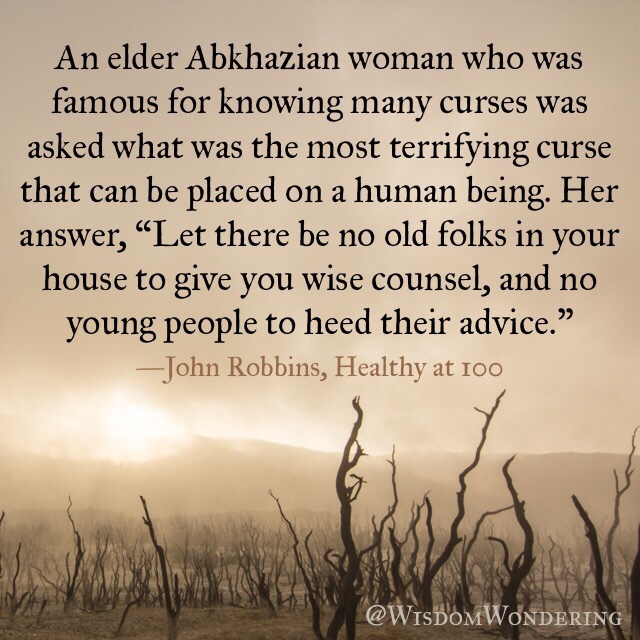To speak of something such as elderhood in times like these feels like such an enormous task. I wonder if we even have a desire for such a thing, and if we do, we must try to understand it by lingering over its absence.
One of the primary reasons elders are on the endangered species list is because so few of them are sought out. In our competency addicted culture, we wall away anyone who might remind us of our own decline in warehouses of amnesia. As such, we’ve replaced elders with “senior citizens,” and there are many noticeable differences between the two.
A senior citizen is someone of advanced age living out their Freedom 55 Plan, who basically fulfills our consumer culture’s role of “not dead yet.” Elders on the other hand are advocates and activists for our time. Their hard learned wisdom leads us to the areas of our culture in dire need of our care and attention and inspires deep learning and action in the hearts of the youth.
How can you recognize an elder from a senior citizen? There are two primary attributes of an elder:
- How their time is spent. Elders live a life of service to the community and culture around them. Their living example shows us what it means to be human—illuminating all of the frailties and endings that come with such a courageous endeavor. Their purpose is in service to the world and humanity as a whole and never geopolitically or religiously motivated.
- The quality of people who seek them out for their wisdom. The most important way to recognize an elder is by the young people they have around them. An elder would never claim for themselves the title of “elder,” but instead, it is something bestowed upon them by those around them.
In these troubled times, being an elder is a radical act and a job description that requires much labor to fulfill. These are a few reasons so few elders exist today and why our world is filled with senior citizens instead. If we want elders in our midst, we have to seek them out.


